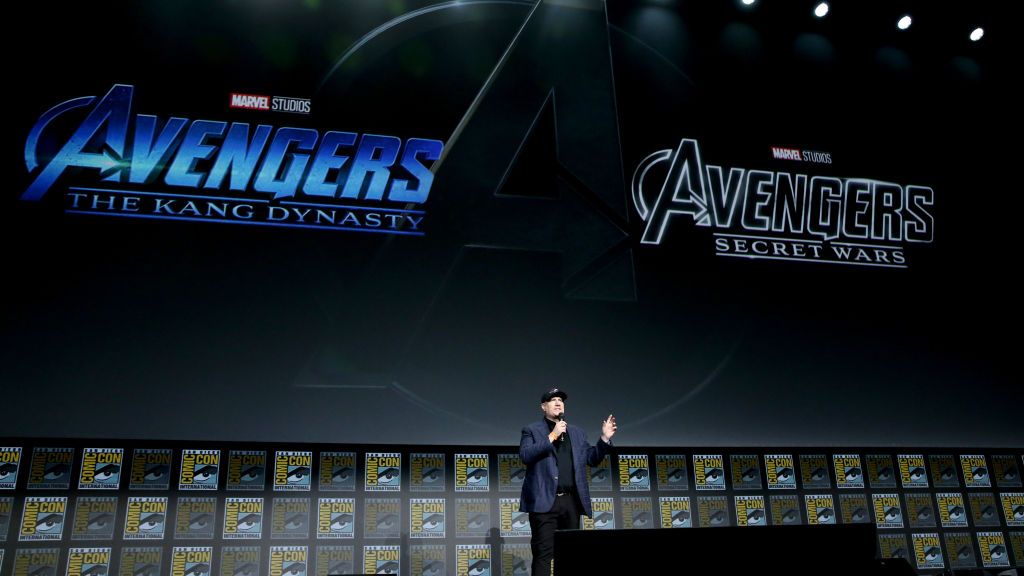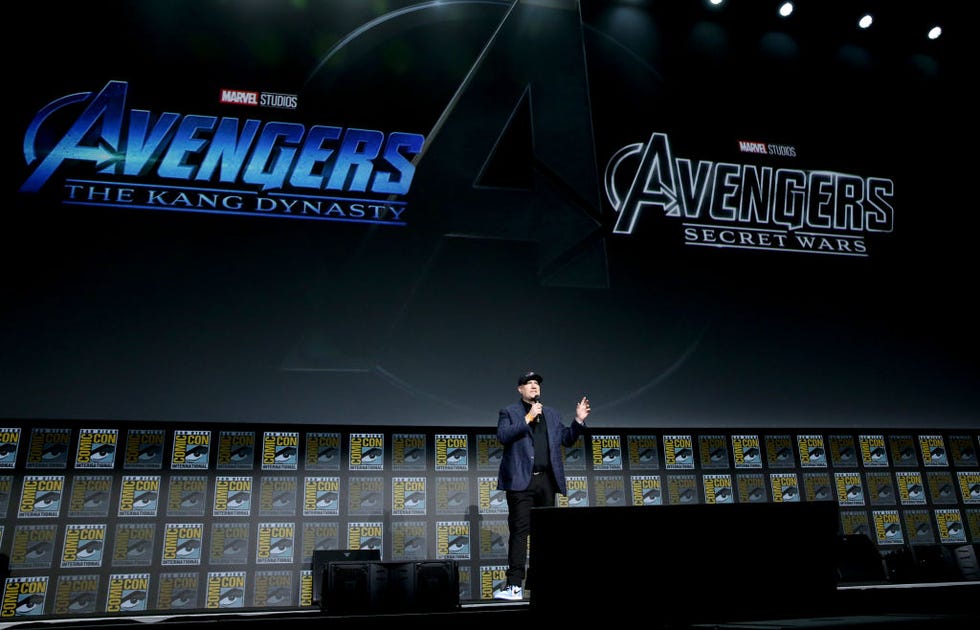Captain Marvel has, as you’ll probably have heard, come crashing back down to Earth. Back in 2019, Brie Larson's first outing as the extraterrestrial superhero took $1.2 billion at the box office and opened with $153 million in its first weekend. It was the crest before the Endgame wave broke, when Marvel managed to be both the biggest thing in Hollywood and, weirdly, the antidote to its most earnest, post-Dark Knight impulses.
The Marvels, not so much. It's just opened with $47 million, the worst first weekend for any Marvel movie – taking that particular record from the Edward Norton Incredible Hulk back in 2008. And it’s the fourth-most expensive Marvel movie too, with a $275 million budget.
A lot of things have been blamed. In fact, let’s run through those things quickly, because there really are a lot of them: the firehose of Marvel TV series; subpar movies; dodgy VFX; the actors’ strike; misogynistic review-bombers, and a disparate and incoherent overarching narrative across the last couple of phases.
Some of them are big and fundamental. Others are the kind which don’t matter that much but become emblematic. Nobody’s ducking The Marvels because Moon Knight had some shoddy green screen in it, but they might well stay at home because they didn’t bother keeping up with the many extremely mid TV shows and films which came along at such a clip that the VFX teams were stretched beyond breaking point.
The strike, by the way, probably didn’t help but wasn’t that big a factor according to box office analyst Shawn Robbins, who told Variety: “It likely wouldn’t have offset the other significant hurdles both inherent to and outside of the film itself.” It’s not Larson’s fault either, or Teyonnah Paris’, or Iman Vellani’s.
Dumping out series after series to ever decreasing fanfare – and hitting a critical low with the dull, weirdly inconsequential Secret Invasion – is an obvious source of the cumulative drag. Too much stuff, not enough of it good enough, and all in the service of a story that doesn’t feel particularly vital. Disney knows it too. As CEO Bob Iger said back in November: “I’ve always felt that quantity can be actually a negative when it comes to quality. And I think that’s exactly what happened.”
It was a decision Marvel made, but it was also pretty much the only thing that was going to happen once Disney+ got going four years ago. Streaming services demand new content all the time to keep driving subscribers, and the assets are sweated as hard as possible. But I think there are other reasons too. Nobody seriously thought that Marvel had cracked the code of box office success so thoroughly that it could simply run and run and run, its momentum crushing all-comers forever, but it certainly defied gravity far longer than ever seemed likely in 2008.
The pandemic had an effect, of course. Some superhero movies were bigger than others, but we’ve only had the genre’s proper bombs since 2020. Shazam did well in 2019. Shazam: Fury of the Gods lost Warner Bros $150 million this year. Then there’s Blue Beetle and the unfortunate Marvels. That enforced break made the post-Endgame era of the MCU feel even more divorced from the bit people had liked than it already was, and aside from hits for Tom Holland’s Spider-Man and Benedict Cumberbatch’s Doctor Strange – both Golden Age MCU hangovers – Marvel hasn’t got its momentum back.
That slow fall into being something people talk about but don’t actually want to go and watch – and, at some point, become something people neither talk about nor go and watch – often gets put down to ‘superhero fatigue’, as if had Marvel and DC sorted out their workflows and smoothed things out to a film a year or so, everything would have continued as was.
I’m as fatigued by superheroes as anyone, but that doesn’t smell quite right to me. You can definitely say Blue Beetle stiffed because it was basically the same as about twenty other superhero films. I don’t think you can say that about The Marvels. Shrugging and putting it down to the changing of the seasons is a little unsatisfying.
Historically, superheroes have tended to do well at the box office when people are disillusioned with their leaders and yearn for some strongman to come and sort things out. The 2008 banking crisis was a reminder that trusting institutions to keep you safe and governments to bring justice was wishful thinking, and the surveillance state became a fact of life. Accordingly, Batman went to war with a political elite and their gangland masters while dabbling in ethically murky tech; in the early 2010s the MCU revealed an American administration riddled with corruption and undead Nazis. That Thor and the gang did this while having some jolly Taika Waititi-style japes was a welcome point of difference from DC.
But we are probably more paranoid now than we have been since the start of the War on Terror, and have far more ways of indulging those paranoias and uncertainties about the world than ever before, and superhero films haven’t managed to move with those paranoias. The whole corruption and hand-wringing about American morality was sidelined a bit during the Thanos saga, and since then the MCU hasn’t found the thing that it’s actually about again.
The things we’re worried about now – climate breakdown, radicalised groups formed online, AI killing everyone – have flitted through superhero movies without informing where the whole thing is headed. For a while it seemed like superhero films would work if they were just about superheroes; I think that’s been comprehensively junked. Without the sense that we’re watching superheroes achieving things which we wish we could do ourselves, they’ll just be flying higher, further and faster into irrelevance.













